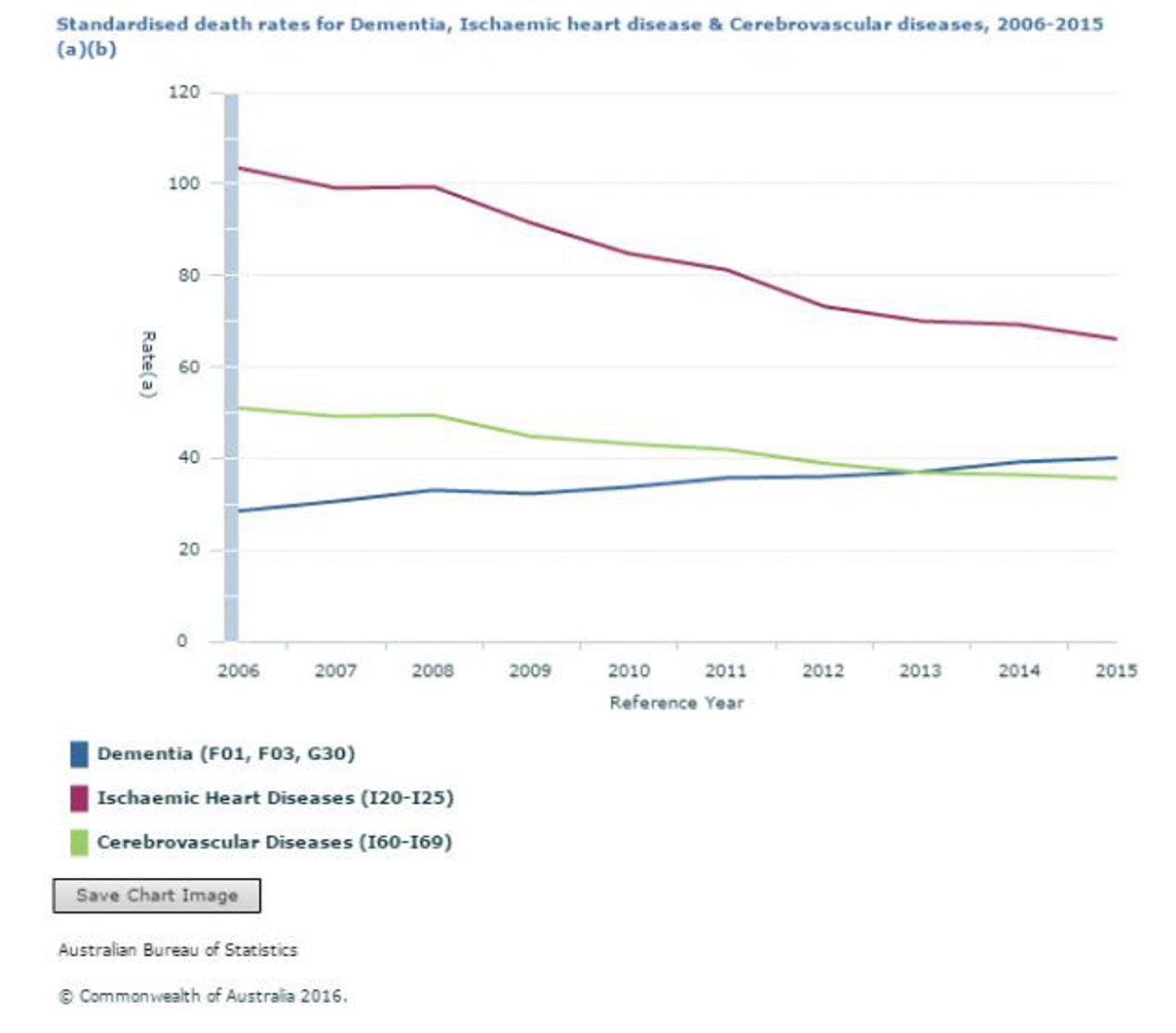Dementia becomes the second biggest killer in Australia
26/04/2023

The disease is also expected to become our leading cause of death within five years. In the latest annual report on death, the Australian Bureau of Statistics (ABS) has released figures showing that 12,625 people died from the disease last year alone.
In 2015, the death rate for dementia, including Alzheimer's disease, jumped to 40.1 deaths per 100,000 people, up from 28.6 in 2006.
It’s also the only one of the top three causes of death that is continuing to climb, with deaths from heart disease (No. 1) and stroke (No. 3) both decreasing over recent years.
Many people are unaware that dementia is a fatal disease, with most people affected dying from complications like malnutrition, lower immunity and loss of mobility when it progresses to the final stages.
Alzheimer’s Australia and the ABS say our ageing population, combined with a longer life expectancy, are to blame for the higher figures.
Alzheimer’s Australia CEO Maree McCabe says: “The greatest risk factor for dementia is age and the number of people aged over 80 are expected to double in the next 20 years.”
But dementia is not just a disease that affects only older people. There are also around 25,000 Australians under 65 living with the disease.
Researchers argue the key factor in living longer with dementia is seeking an early diagnosis and gaining access to treatment faster. However, studies have also found many people avoid getting a diagnosis for up to a year or more.
It’s well worth learning more about the early signs of dementia and seeking medical advice and support if you are concerned about yourself, a family member or friend.
There is a national hotline that can provide assistance and advice: National Dementia Helpline: 1800 100 500 (interpreter service available)
Find out more about the warning signs of dementia here.














